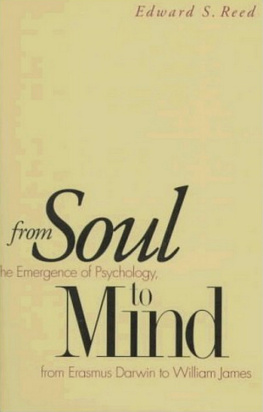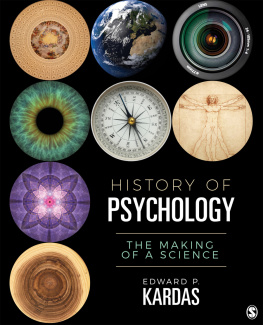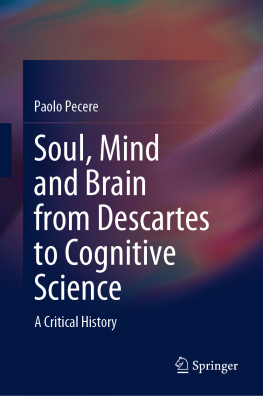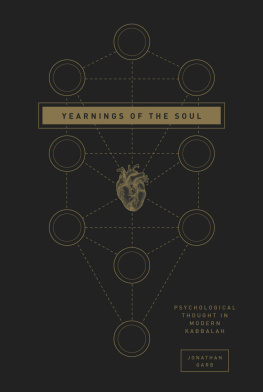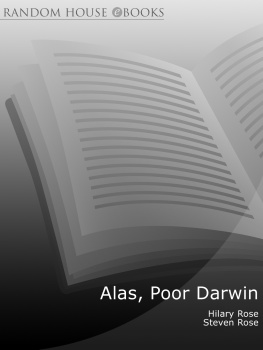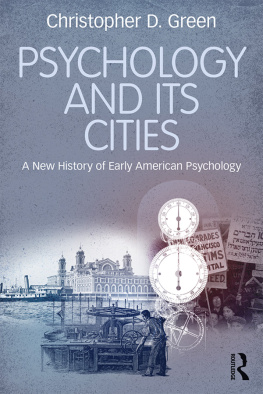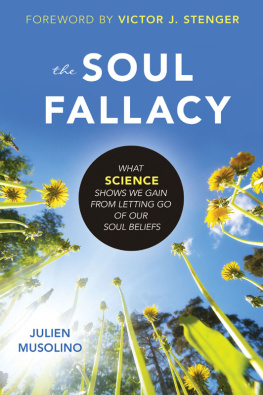Page i
From Soul to Mind
Page ii
Page iii
FROM SOUL TO MIND
The Emergence of Psychology
from Erasmus Darwin to William James
EDWARD S. REED
Yale University Press New Haven and London
Page iv
Copyright 1997 by Edward S. Reed.
All rights reserved.
This book may not be reproduced, in whole
or in part, including illustrations, in any form
(beyond that copying permitted by Sections 107 and 108
of the U.S. Copyright Law and except by reviewers
for the public press), without written permission
from the publishers.
Printed in the United States of America.
Library of Congress
CataloginginPublication Data
Reed, Edward (Edward S.)
From soul to mind: the emergence
of psychology, Erasmus Darwin to William
James/Edward S. Reed.
p. cm.
Includes bibliographical references (p.)
and index.
ISBN 0300069677 (cloth)
0300075812 (paper)
1. PsychologyHistory19th Century.
I. Title.
BF103.R44 1997
150'.9'034dc21 9649051
CIP
A catalogue record for this book is available
from the British Library.
The paper in this book meets the guidelines for
permanence and durability of the Committee on
Production Guidelines for Book Longevity
of the Council of Library Resources.
10 9 8 7 6 5 4 3 2
Page v
If the labours of men of Science should ever create any material revolution, direct or indirect, in our condition, and in the impressions which we habitually receive, the Poet will sleep then no more than at present, but he will be ready to follow in the steps of the Man of Science, not only in those general indirect effects, but he will be at his side, carrying sensation into the midst of the objects of the Science itself.
William Wordsworth, Preface to Lyrical Ballads
Page vi
Page vii
CONTENTS
Preface
ix
CHAPTER 1
In Search of Psychology
CHAPTER 2
The Impossible Science
CHAPTER 3
Frankenstein's Science
CHAPTER 4
The Breakdown in the Concert of European Ideas
CHAPTER 5
The Brief Life of Natural Metaphysics
CHAPTER 6
1848 and All That
CHAPTER 7
The Three Unconsciousnesses and How They Grew
CHAPTER 8
The Apotheosis of Positivism
CHAPTER 9
The Anomalous Mr. Darwin
Page viii
CHAPTER 10
The Generation of 1879, or How Philosophy
Emerged from Psychology
CHAPTER 11
William James: Psychology as a Science of Experience
Bibliographic Essay
Index
Page ix
PREFACE
Students of psychology often ask why the psychological insights of novelists and other creative writers tend to be overlooked by those who call themselves scientific psychologists. Surely Dostoevsky or Proustto name two obvious exampleshave much to tell us about the human psyche. This is a better question than most students realize, for it opens up a historical problem of the greatest significance: the parallel emergence of modern psychology and the modern novel. In the late nineteenth century these two important aspects of modernist culture appeared, and they have gained power in the twentieth century, during which time experimental and clinical psychologists have become extremely numerous and the novel has held, until recently, pride of place in Western culture. In the early nineteenth century, psychological issues were more likely to be explored in the poetry of Shelley or Wordsworth than in the novels of Scott or Balzac. At the same time, the few scientists who were exploring the psyche were likely to be physicians or physiologists, and of course there were no clinical psychologists at all.
The curious student's question about why scientific psychologists shun the insights of creative writers thus leads to the more pointed question of what happened during the 1800s to segregate science from literature. What historical transformation encouraged people to define themselves as psychologists rather than writers, or vice versa? In many ways this is a fundamental question for historians of psychology, because both modern psychological theories and the social institutions in Page x
which psychology is practiced grew out of the process of segregation. Yet it is on this question that the existing literature is surprisingly silent.
This unhelpful reticence in histories of psychology, as well as in related histories of philosophy, is largely the result of a series of avoidances that has characterized the history of science in general and that of psychology in particular. These avoidances have kept the history of science isolated from other areas of historical work and have undermined its utility for helping us understand the emergence of the moderneven though modern culture is inextricably bound up with advances in science and technology.
From Soul to Mind begins the ambitious task of telling a new story about the development of psychology. I start from the realization that we do not actually know what constituted psychology in the eighteenth and early nineteenth centuries. Most histories devote extensive space to theorists but give short shrift to experimentalists. This bias makes it easy to tell the old story about a scientific psychology that emerged from centuries of mere speculationbut of course it doesn't do anything to validate the truth of that old fable quite the opposite. Historians of psychology have avoided what should be one of their central tasks: to explain the history and origins of ideas concerning what should and should not be counted as psychology.
Historians of psychology have also ignored the ideas that later proved mistaken. Luigi Galvani and Alessandro Volta, for example, appear in most histories of psychology as physiologists who discovered the electrical basis of neural transmission, not as researchers into the nature of vital and mental forces. This despite the fact that neither Galvani nor Volta would have wished to be called a physiologist, had such a term been available in their day. Neither believed that what they had discovered was electricity in our sense of the word, nor did either have
Page xi
anything approaching a concept of neural transmission. They thought they were studying the relation between electricity and the life force (vital force). By ignoring what Galvani and Volta actually thought (and characterizing their ideas in an anachronistic and inaccurate way), modern histories make it impossible to understand the power of the concept of force (animate and mental, as well as electrical or caloric) in the first half of the nineteenth century. The intimate connection between theories of animal magnetism, animal electricity, animal heat, mesmerism, and phrenology and the first serious attempts to physiologize the association of ideas will never be understood unless we overcome the reluctance of historians of science to study the fringe elements in the origin of modern scientific thinking.
In trying to understand the growth of modern psychology, we must not overlook the historical development of the career of being a psychologist. As late as 1900
there were few career psychologists, whereas a century later psychology is among the largest of the scientific professions. When we study earlier periods, we should not be surprised to find doctors, academics, preachers, writers, and quacks all actively engaged in the practice of psychology. Yet historians of psychology have rarely looked beyond a narrowly defined groupprimarily the canonical theorists of the mind found in histories of philosophy, plus the nerve physiologists from histories of physiologyin identifying their protagonists. Neither Kierkegaard nor the Combe brothers (who combined phrenology with Protestant ministry) stand a chance of inclusion, given this blinkered perspective. The blindness to all but a small number of historical actors is an egregious error, I argue here, because at the beginning of the nineteenth century the most important European psychologist was a medical doctor and poet, Erasmus Darwin. Students of literature have long known this, but Erasmus Darwin has received little serious attention within histories of psychology or Page xii
Next page
